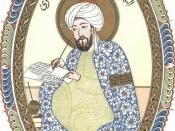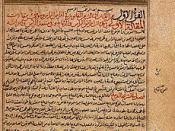Sexology is an interdisciplinary science that focuses on diverse aspects of human sexuality, studying human sexual development, relationships, and intercourse, sexual malfunctions, sexually transmitted diseases, and pathologies such as child sexual abuse or sexual addiction. It has still not been fully recognized as a separate professional field but is most often found as a subdiscipline within fields such as biology, psychology, anthropology, medicine, sociology, epidemiology, and sometimes criminology. Sexology as it exists today emerged as one of the fields of inquiry of Western science during the second half of the 19th century. However, interest for the management of human sexuality has been present for centuries in various cultural traditions that greatly differ in levels of sexual tolerance and ways of defining socially acceptable modes of sexual behavior. This entry describes the history of sex research.
From Antiquity to the EnlightenmentHuman sexual behavior, reproduction, education, ethics, and treatment of sexual malfunctions were studied by Greek philosophers and physicians, such as Aristotle, Galen, Plato, and Hippocrates.
The age also saw the appearance of works that instructed on the art of seduction and lovemaking, such as Ars Amatoria written by the famous Roman poet Ovid (circa 1 BCE), and the Kama Sutra, the work of the Indian scholar Mallanga Vatsayana. In the Western tradition of proto-sexology, classical Greek ideas remained dominant until the 19th century, when the general development of science instigated the change of ideas about human sexual behavior and the establishment of what today is considered the science of sex and sexuality. Arabic and Jewish scholars preserved and further developed the sexological knowledge of antiquity, bringing it back to Europe in the early Middle Ages. Thus, the Arabic scholar Ibn Sina (Avicenna) brought back to Europe Aristotle's idea of the inferiority of female generative power in relation to male, which was...


